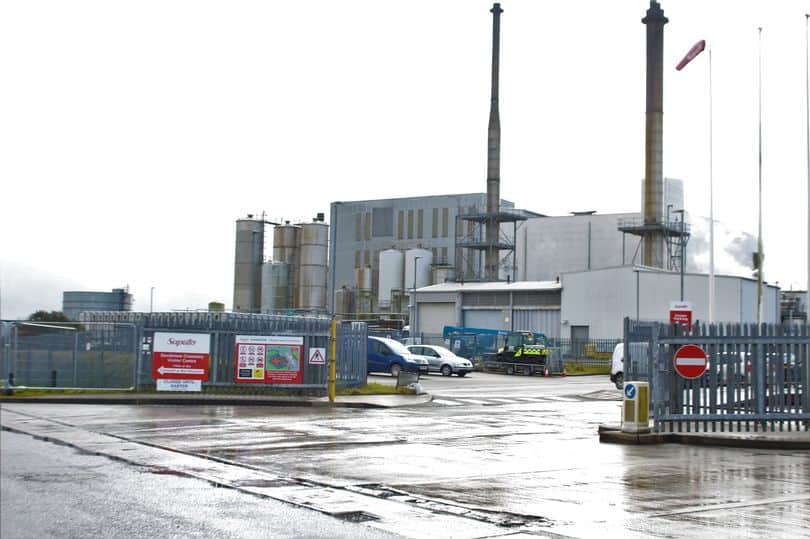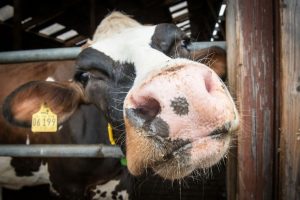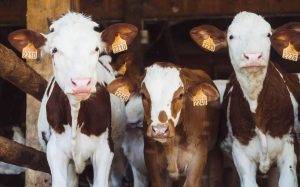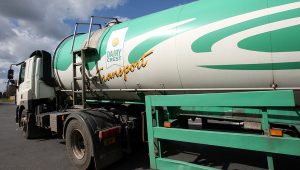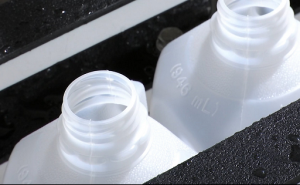
The dairy giant, owned by Canadian company Saputo, applied for a permit to increase production to 11.4 tonnes per hour.
A Cornwall dairy factory, formerly known as Dairy Crest but now owned by Canadian company Saputo, has applied for a permit to increase its production by nearly 20 per cent – despite not being able to adhere to its current permit.
An application was made to the Environment Agency asking if production at Davidstow Creamery, in north Cornwall, could increase from 9.6 to 11.4 tonnes per hour. This is despite an ongoing investigation over multiple breaches of the site’s current permit.
A local angling group has urged that expansion plans are put on hold, accusing the company of being “unfit” to follow the rules of its current permit, let alone be granted a new one. It claims the move would increase pollution into rivers and have devastating impacts on wildlife, just a year after Saputo was convicted for similar offences.
In 2022 the company behind the dairy plant, which makes Cathedral City cheeses and Frylight, was fined at Truro Crown Court after pleading guilty to 21 charges relating to pollution and odour incidents and permit breaches from 2016 to 2022. Eleven of the charges were to do with the company breaching environmental permits with waste discharges into the River Inny.
Further offences related to the contravention of permits on odour and another for the company waiting more than a month to inform the EA about breaches in discharge. Thousands of trout died as a result of events at Davidstow Creamery.
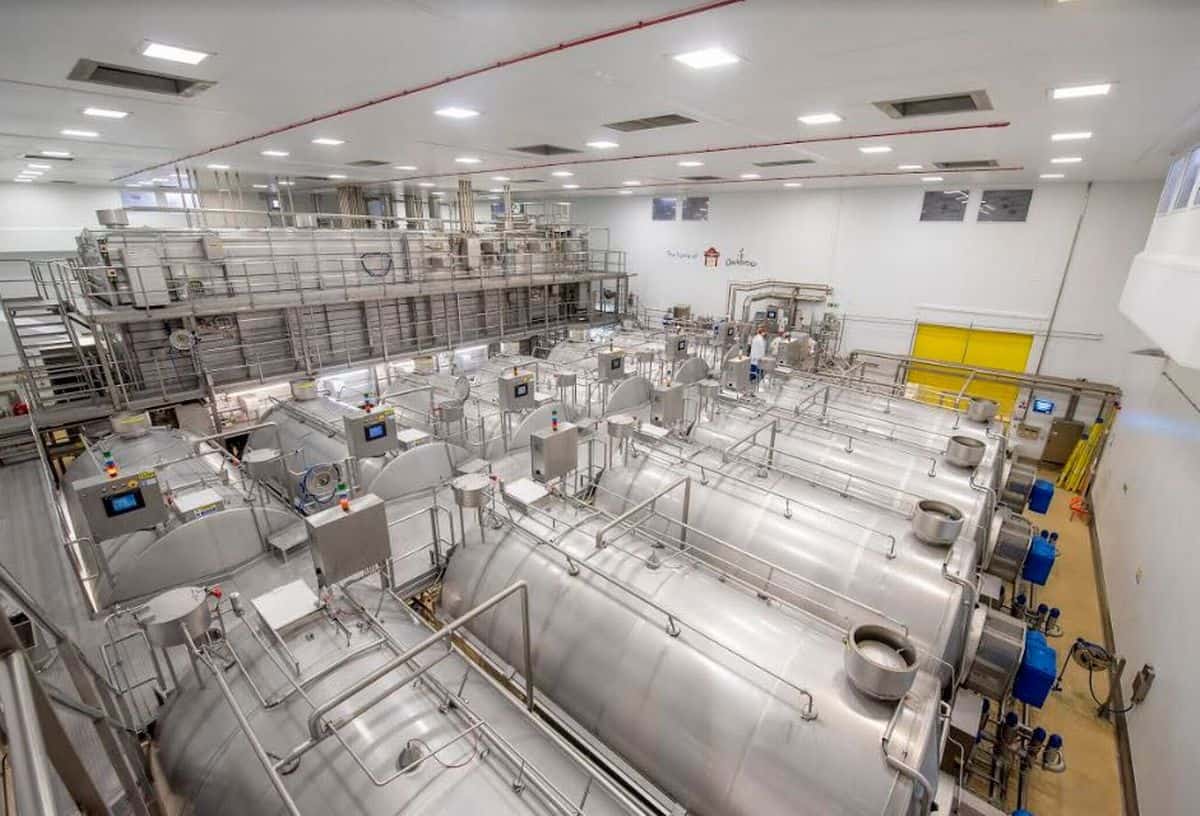
A current ongoing investigation relates to permit breaches that have occurred in addition to those. In February of this year, CornwallLive revealed that “multiple permit breaches” had been made since a £1.5 million fine was made in court and that an active investigation into offending in 2021, 2022 and 2023 was taking place.
A spokespeson for Saputo however says that the Davidstow site is now in compliance with its existing permit. It added that three quarters of public comments received during the consultation on the permit variation were supportive of the application.
Martin Harmer, chairman of Launceston Anglers’ Association, members of which have fishing rights on the River Inny and River Tamar, said: “As far as are we are concerned, Dairy Crest is not fit to run this industrial site at current levels of production, let alone at increased capacity.
“Until this company is able to demonstrate competent management, permit compliance and zero pollution, the Environment Agency shouldn’t approve its expansion. To do so, would sacrifice the health of the local river and its wildlife in favour of this serial polluter.”
Saputo had defended itself earlier this year, saying it had undertaken a “substantial” programme of capital investment and operational improvements over the past four years at the Davidstow site, saying “further initiatives” were underway to address additional issues of odour and noise that are impacting neighbours..
Addressing environmental concerns, it added that environmental compliance “remains a top priority”, saying: “We remain firmly committed to our environmental agenda and ongoing investment plans.”
A spokesperson for the Environment Agency, which is now considering whether to grant the permit, said: “A public consultation on an application by Saputo to increase their production from 9.6 to 11.4 tonnes per hour has recently closed. We are now considering all of the comments sent in to us and will begin determining the application.
“This process can take a while, but we will let the public know when we think we are nearing a decision. If we think we are likely to grant the variation to the permit, we will consult with the public again and there will be another opportunity for people to give us their views.” The regulator also explained that it has a duty to consider all applications and consult with the public before reaching any decision.
A spokesperson for Saputo said: “Dairy Crest Limited takes its environmental commitments very seriously. Its application to make changes to its Environmental Permit for the Davidstow Creamery is about making the site more resilient and efficient, giving it further operational flexibility, as well as enabling an increase in cheese-making capability.
“The application also describes investment in a wide range of projects to enhance the robustness of the associated water processing facility (WPF) on which the creamery relies for day-to-day operation. The Davidstow site is in compliance with its existing permit and continues to work closely with the Environment Agency and the local community. Almost three quarters of public comments received during the consultation on the permit variation were supportive of the application.”
Fish Legal, representing Launceston Anglers’ Association, argues that because of the ongoing criminal investigation, not enough information has been provided by the Environment Agency to assess the impact of increased production and discharges from the industrial facility to enable proper public responses to be made.
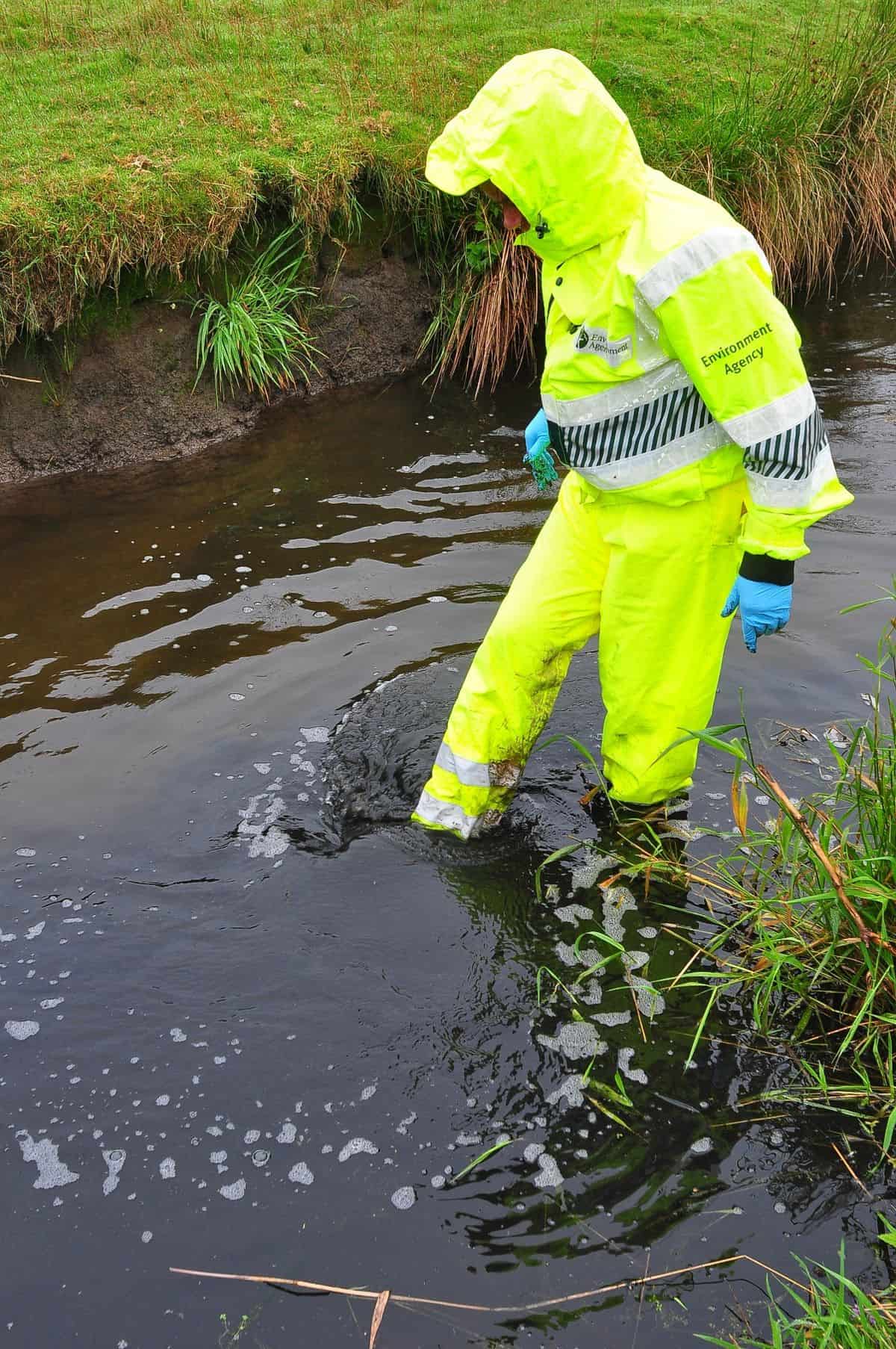
As a result it believes the impact on trout, sea trout, salmon and grayling populations in the River Inny and wider Tamar catchment cannot at this time be gauged. Geoff Hardy, Fish Legal solicitor, said: “This is a company that a judge described in sentencing for previous offences as having a bullying culture in its management. They have applied to increase production capacity in the wake of being shamed by one prosecution and possibly facing more.
“It beggars belief that the Environment Agency is even entertaining the idea of allowing the operator of a huge site producing the same amount of effluent as a small town with such a terrible environmental record to expand. To date, the company has showed scant regard for the environment or the concerns of local people and the proposals don’t fill us with any hope they will change their ways.”
He added: “We have suggested that the expansion plans are put on hold until all ongoing investigation and enforcement action has concluded. Only then will the public be able to comment on whether it is safe or appropriate to increase dairy processing at this site.”
